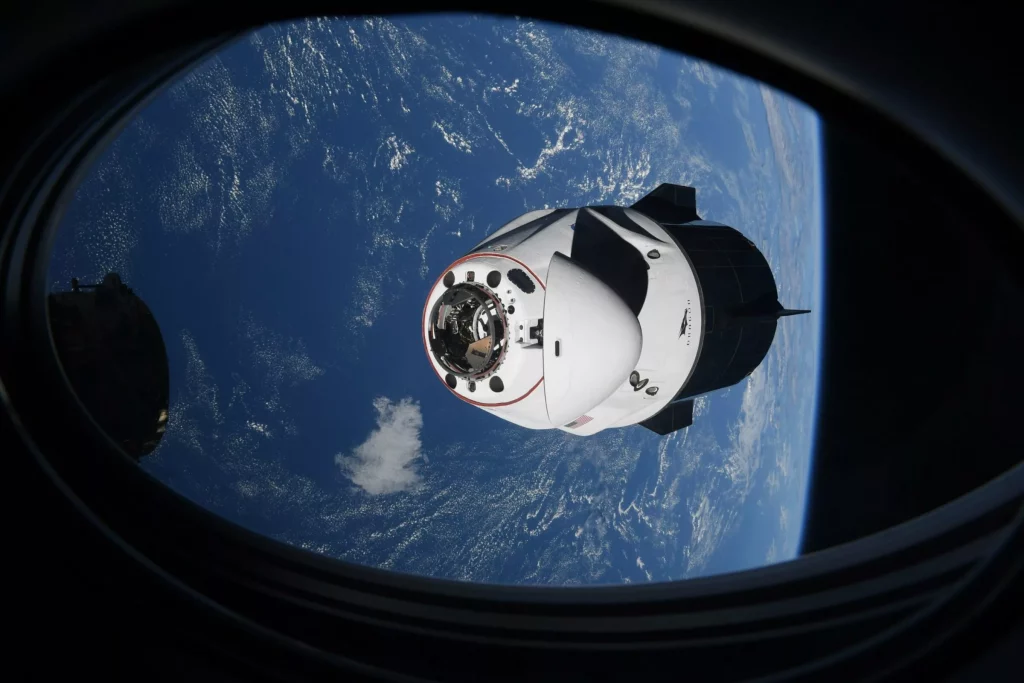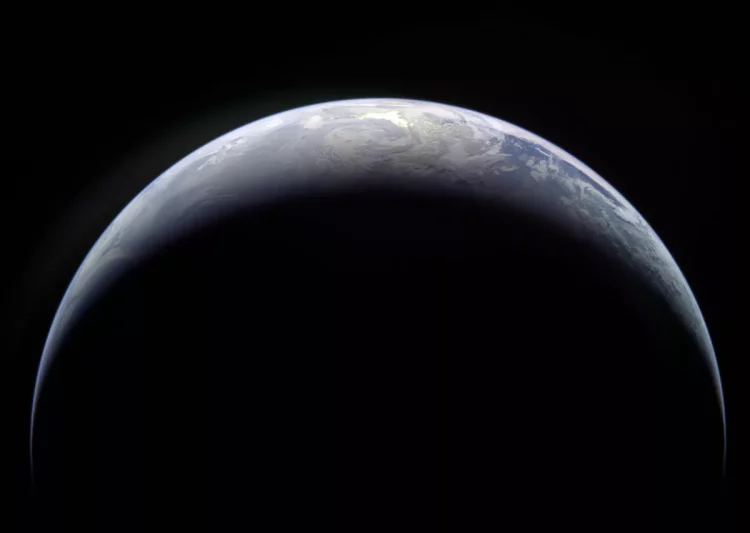Earth, the third planet from the Sun, is a unique world characterized by its diverse landscapes, complex climate systems, and rich biodiversity. As the only known planet to support life, Earth is a dynamic and ever-changing system that provides a fascinating subject of study. This article delves into the intricate details of Earth’s physical characteristics, atmospheric composition, geological processes, ecosystems, and the impact of human activity, offering a thorough exploration of our home planet.
I. Overview of Earth
1. Basic Facts
- Size and Mass: Earth has a diameter of about 12,742 kilometers (7,918 miles) and a mass of approximately 5.97 × 10^24 kilograms. It is the fifth-largest planet in our Solar System and is located about 149.6 million kilometers (93 million miles) from the Sun, which is roughly 1 Astronomical Unit (AU).
- Orbit and Rotation: Earth orbits the Sun in an elliptical path, completing one orbit approximately every 365.25 days. This period is known as a year. Earth rotates on its axis every 24 hours, resulting in the day-night cycle. The tilt of Earth’s axis at 23.5 degrees is responsible for the changing seasons.
- Shape and Structure: Earth is an oblate spheroid, meaning it is slightly flattened at the poles and bulging at the equator due to its rotation. The planet’s structure consists of several layers: the crust, mantle, outer core, and inner core.
2. Physical Characteristics
- Crust: The Earth’s crust is the outermost layer and is divided into two types: the continental crust, which forms the continents, and the oceanic crust, which underlies the ocean floors. The crust is relatively thin, varying in thickness from about 5 to 70 kilometers (3 to 43 miles).
- Mantle: Beneath the crust lies the mantle, which extends to a depth of about 2,900 kilometers (1,800 miles). The mantle is composed of semi-solid rock that flows slowly over geological timescales. It is responsible for tectonic activity and volcanic eruptions.
- Core: The core is divided into two parts: the outer core, which is liquid and composed mainly of iron and nickel, and the inner core, which is solid and also made primarily of iron and nickel. The movement of the molten outer core generates Earth’s magnetic field.
II. Atmospheric Composition and Weather
1. Composition and Structure
- Atmospheric Layers: Earth’s atmosphere is divided into several layers based on temperature gradients: the troposphere (where weather occurs), the stratosphere (home to the ozone layer), the mesosphere, and the thermosphere. Above these layers is the exosphere, where atmospheric particles transition into space.
- Major Gases: The atmosphere is composed of about 78% nitrogen, 21% oxygen, and trace amounts of other gases such as argon, carbon dioxide, and water vapor. The presence of these gases is crucial for sustaining life and regulating Earth’s climate.
2. Weather and Climate
- Weather: Weather refers to the short-term atmospheric conditions, including temperature, humidity, precipitation, and wind. Weather patterns are influenced by various factors such as latitude, altitude, and proximity to bodies of water.
- Climate: Climate represents the long-term average of weather conditions over extended periods. Earth’s climate is categorized into different zones, including tropical, temperate, polar, and arid. Climate is influenced by factors such as solar radiation, greenhouse gases, and ocean currents.
- Climate Change: Human activities, particularly the burning of fossil fuels and deforestation, have led to an increase in greenhouse gases and global temperatures. Climate change poses significant challenges, including rising sea levels, more frequent extreme weather events, and disruptions to ecosystems.
III. Geological Processes and Landforms
1. Plate Tectonics
- Tectonic Plates: Earth’s lithosphere (the rigid outer layer) is divided into several large and small tectonic plates that float on the semi-fluid asthenosphere below. The movement of these plates is responsible for various geological phenomena.
- Plate Boundaries: Tectonic plates interact at their boundaries, which can be divergent (moving apart), convergent (colliding), or transform (sliding past each other). These interactions lead to the formation of mountains, earthquakes, and volcanic activity.
- Earthquakes and Volcanoes: Earthquakes occur due to the sudden release of stress along faults or plate boundaries. Volcanic eruptions result from magma escaping to the surface through volcanic vents. Both phenomena are closely linked to tectonic plate movements.
2. Erosion and Sedimentation
- Erosion: Erosion is the process by which rocks and soil are worn away by natural forces such as wind, water, and ice. This process reshapes landscapes and contributes to the formation of features like valleys and canyons.
- Sedimentation: Sedimentation involves the deposition of particles transported by erosion. Sedimentary rocks form from these deposited materials over time. Common sedimentary rock types include sandstone, shale, and limestone.
3. Major Landforms
- Mountains: Mountains are elevated landforms that can be formed through tectonic forces, volcanic activity, or erosion. Examples include the Himalayas, the Andes, and the Rocky Mountains.
- Plains: Plains are flat or gently rolling areas of land that are often formed by sedimentation. They are typically found in regions where large rivers deposit sediments, such as the Great Plains in North America.
- Deserts: Deserts are arid regions with minimal rainfall and sparse vegetation. They can be hot, like the Sahara, or cold, like the Gobi Desert. Deserts are characterized by unique landforms such as dunes and rocky plateaus.
- Oceans and Seas: Earth’s surface is covered by about 71% water, with oceans being the largest bodies of water. The Pacific, Atlantic, Indian, Southern, and Arctic Oceans are the primary oceans. Seas are smaller, partially enclosed by land, and include the Mediterranean, Red, and Caribbean Seas.

IV. Ecosystems and Biodiversity
1. Terrestrial Ecosystems
- Forests: Forests are diverse ecosystems characterized by a high density of trees. They include tropical rainforests, temperate deciduous forests, and boreal forests (taiga). Forests are crucial for carbon sequestration, oxygen production, and habitat provision.
- Grasslands: Grasslands are characterized by vast open spaces with grasses and few trees. Examples include savannas, prairies, and steppes. Grasslands support large herbivores and play a role in soil formation and water regulation.
- Deserts: Deserts support specialized plant and animal species adapted to extreme conditions. Cacti, succulents, and xerophytes are common plant types, while animals include camels, lizards, and rodents.
2. Marine Ecosystems
- Coral Reefs: Coral reefs are diverse underwater ecosystems built by coral polyps. They provide habitat for a wide range of marine species and are often referred to as the “rainforests of the sea.” Coral reefs are found in tropical and subtropical waters.
- Estuaries: Estuaries are transitional zones where freshwater from rivers meets and mixes with saltwater from the ocean. They are highly productive areas that support diverse wildlife and serve as important breeding grounds for many species.
- Open Ocean: The open ocean is the vast expanse of water away from coastlines. It is divided into different zones based on depth and light penetration, including the epipelagic (surface), mesopelagic (twilight), and bathypelagic (deep) zones.
3. Human Impact on Ecosystems
- Deforestation: Deforestation involves the removal of forests for agriculture, urban development, or logging. It leads to habitat loss, reduced biodiversity, and increased carbon emissions.
- Pollution: Pollution from industrial activities, agriculture, and waste affects air, water, and soil quality. Pollution has detrimental effects on ecosystems, wildlife, and human health.
- Climate Change: Climate change impacts ecosystems by altering temperature and precipitation patterns. It affects species distributions, migratory patterns, and ecosystem functions.
V. Exploration and Understanding of Earth
1. Historical Exploration
- Ancient Observations: Early civilizations made significant observations about Earth, including the shape of the planet and the cycle of seasons. Ancient Greek philosophers like Aristotle and Eratosthenes contributed to our understanding of Earth’s geometry and size.
- Geological Studies: In the 19th century, geologists like Charles Lyell and Alfred Wegener advanced the study of Earth’s geology and plate tectonics. Wegener’s theory of continental drift laid the foundation for modern plate tectonic theory.
2. Modern Scientific Research
- Satellites and Remote Sensing: Modern satellites and remote sensing technology provide comprehensive data on Earth’s surface, atmosphere, and climate. Instruments like the Landsat satellites and the European Space Agency’s Copernicus program offer valuable insights into land use, environmental changes, and natural disasters.
- Climate Models: Climate models simulate Earth’s climate systems to predict future changes based on various scenarios. These models help scientists understand the potential impacts of climate change and guide policy











































Discussion about this post